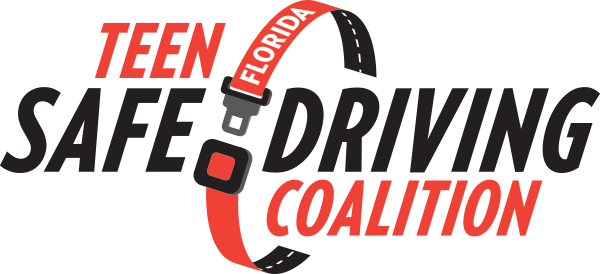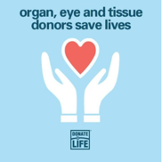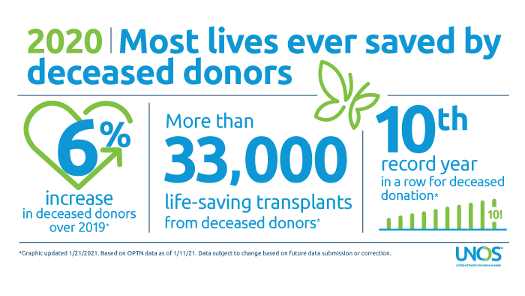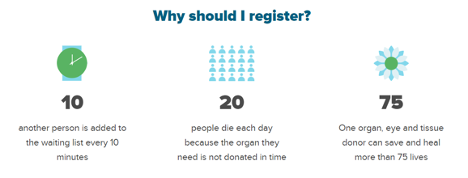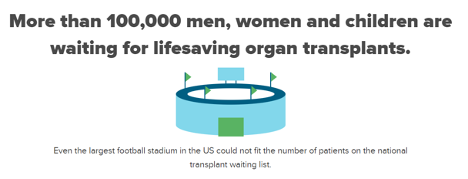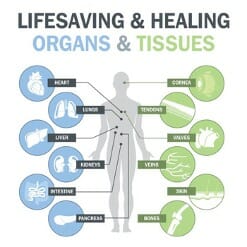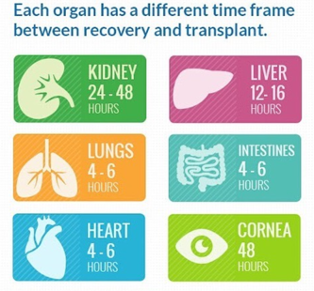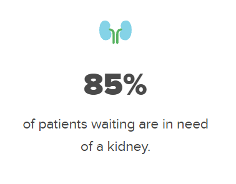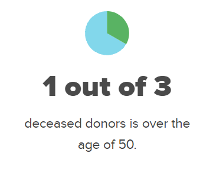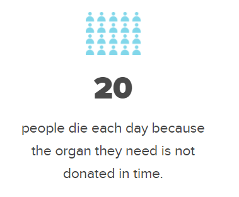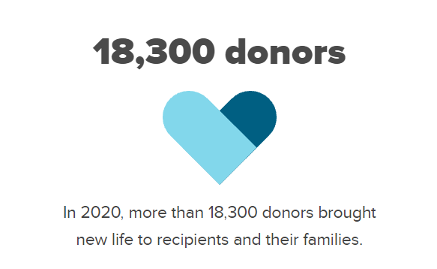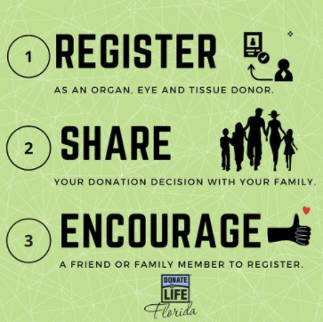What is organ donation and transplantation?
Organ donation is the process of surgically removing an organ or tissue from one person (the organ donor) and placing it into another person (the recipient). Transplantation is necessary because the recipient’s organ has failed or has been damaged by disease or injury. Donate Life
Organ transplantation is one of the great advances in modern medicine. Unfortunately, the need for organ donors is much greater than the number of people who actually donate. Every day in the United States, 22 people die waiting for an organ and more than 112,000 men, women and children await life-saving organ transplants.
